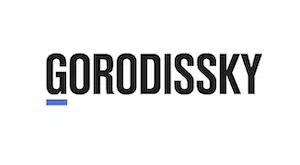Starting from January 1, 2024, the Eurasian system of inventions and industrial designs patent protection are guided by amended Patent Regulations, approved by the decision of the Administrative Council of the Eurasian Patent Organization (EAPO), adopted at the 43rd (30th regular) meeting of December 5-7, 2023.
Perhaps the main, strategically directed amendment is substantially extending the period within which an appeal for administrative revocation of a granted Eurasian patent can be submitted. The period was originally six months. In 2022, the period was extended to nine months for both invention and industrial design patents; with the recent amendments, the period became three years calculated from the date of EAPO publication of a notice of patent grant. Such amendment very clearly demonstrates the first steps towards establishing a Eurasian regional patent court system, one of the several ambitious strategic aims that were proclaimed by Dr. Grigory Ivliev, president of the EAPO.
Although being granted as a unitary-type one, a Eurasian patent has countrywide validity and can be challenged and invalidated after expiration of the administrative revocation period with the national patent offices of the Eurasian countries on which territories it is maintained. Its invalidation in one of such countries does not have any effect on validity in others until national invalidation procedures in them result in the same conclusion. Notably, at the invalidity proceedings on a Eurasian patent at the national patent offices, the latter should apply to Eurasian legislation.
Challenging a Eurasian patent within the administrative revocation procedure is done by submitting to the EAPO an appeal, which initiates invalidity proceedings at the EAPO level and, if the appeal is successful, results in recognizing the granted Eurasian patent invalid in all member-states immediately.
Therefore, the recent elongation of the administrative revocation period to three years may not be unanimously favoured by actual and further Eurasian patent holders exactly because of the possibility of potentially losing a patent immediately and in all Eurasian jurisdictions.
It is clear that by elongating the administrative revocation period, the EAPO was motivated by the desire to ensure authenticity, i.e. by the EAPO itself, applying Eurasian legislation and regulations at the invalidation proceedings – a matter that was raised in a number of court cases in Russia and other member states when invalidity decisions were reverted namely due to the failure of national patent authorities to correctly apply the Eurasian law in invalidity proceeding. Moreover, due to feasibly different regulations and approaches between EAPO and certain national patent offices of the Eurasian member states in special categories of inventions, like selective inventions, polymorphs protection and computer-implemented inventions, it is indeed important that Eurasian law is correctly applied on them in invalidation proceedings.
However, it is also clear that for a large number of patent holders and market competitors, in their international business strategies, split administrative invalidation proceedings would outweigh the attractiveness of centralized proceedings with the EAPO, which they may not routinely use but by which they receive a higher possibility to immediately lose their own patent in all jurisdictions. Perhaps, like the EPO system with a "sunrise period" for electing the Unitary patent system, the EAPO could also allow a choice for the patent holders between short and long administrative revocation periods to elect.
Second by importance, amendments that have effect from January 1, 2024, relate to industrial design examination and expand the list of revisions that are done by the EAPO examiners in relation to the claimed industrial design at the substantive examination stage, regardless of existing third-party objections against the grant of a Eurasian patent for an industrial design. It is worth remembering that the Eurasian industrial design examination system, in the way it was initially introduced, in substantial part relied on objections of third parties, with a minimal examining role on novelty and originality criteria in absence of such objections. The introduced amendments show the desire of the EAPO to become a full examining authority with regard to industrial designs and by that, to increase the value of Eurasian industrial designs in business turnover across eight Eurasian member-states.
With such new amendments, the EAPO will verify the compliance of the claimed industrial design with novelty conditions based on publicly available information available to the EAPO and information received by the EAPO during substantive examination. Furthermore, starting from January 1, 2024, the EAPO also checks whether a claimed industrial design is identical, confusingly similar to or includes trademarks protected or applied for registration and published in the territory of at least one of the Eurasian member states; is identical, confusingly similar to or includes titles or names of works of science, literature or art, characters or quotations from such works, works of art or their fragments rights for which exist in the territory of at least one of the Eurasian member states; or represents an article's design that may mislead the consumer of a product for which such article serves as a container, packaging, or label. A possibility of resolving a dispute through a mediation procedure in the event of an industrial design being identical or confusingly similar to trademarks with earlier priority has been added.
Further amendments that came into force are of a less significant nature and mainly introduce a number of procedural deadlines.
Some fees were also increased to address the past two-year fluctuations of the official currency in which the EAPO accepts payments. However, due to the existing exchange rates with the main world currencies, the rise of the Eurasian official fees appears insignificant compared to the EAPO fees that existed two years ago.
Originally Published by AsiaIP
The content of this article is intended to provide a general guide to the subject matter. Specialist advice should be sought about your specific circumstances.

